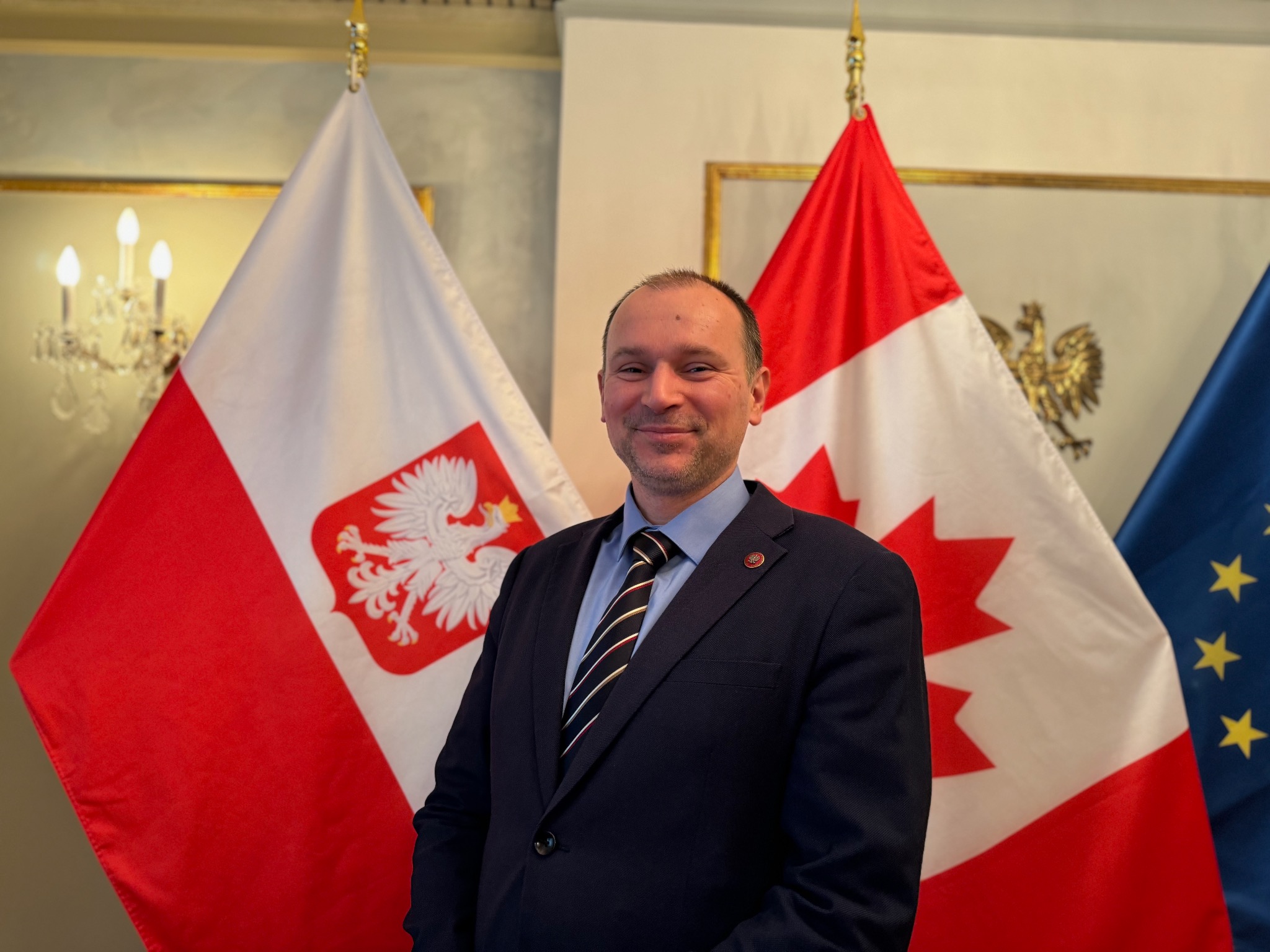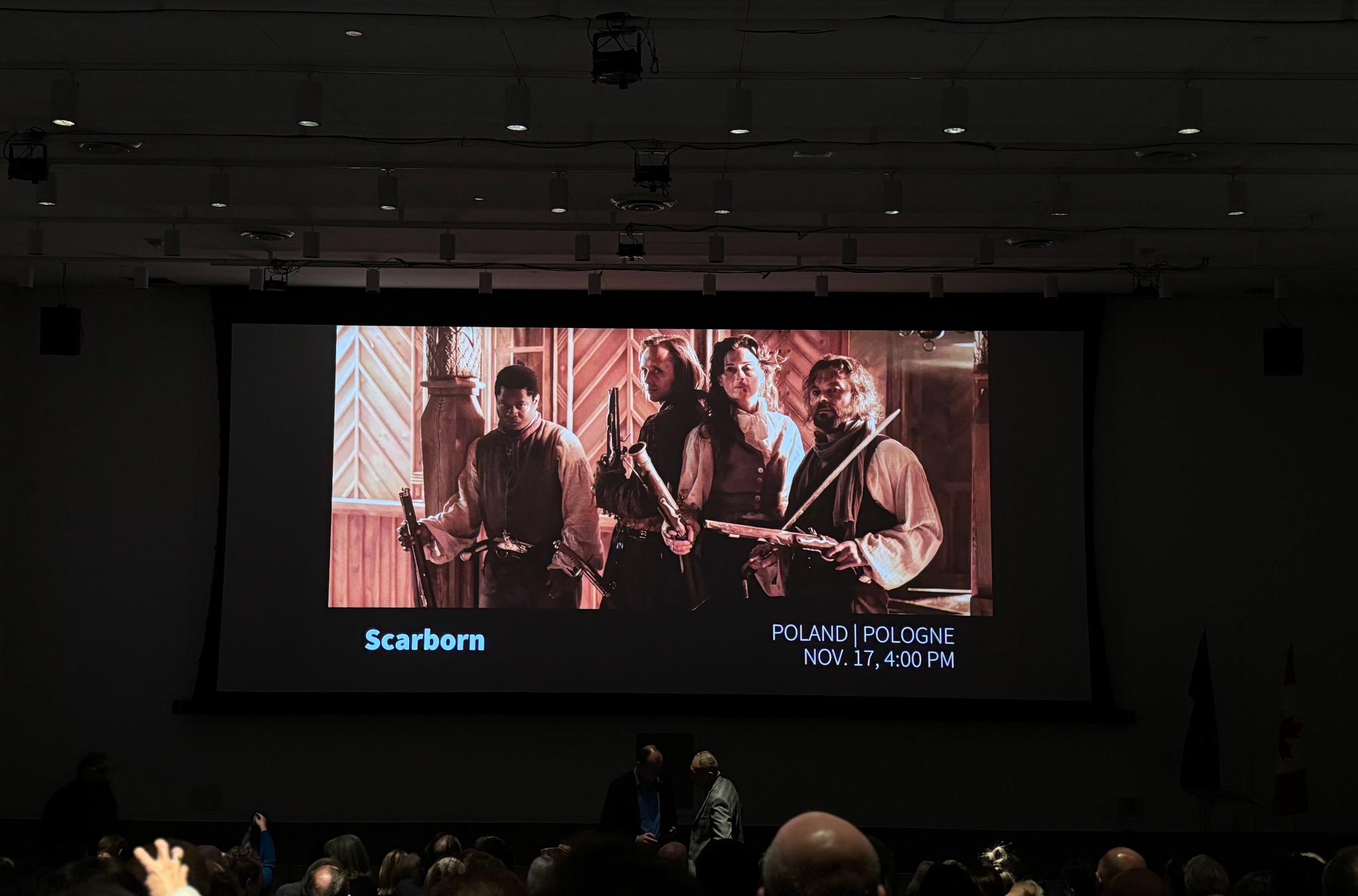Ambassador Witold Dzielski talks about the EUFF’s Polish film, Scarborn
Poland’s Ambassador to Canada Witold Dzielski talked about how Scarborn became Poland’s selected film for the European Union Film Festival (EUFF), and how it connects to Polish history.
Scarborn was released in September 2023 and was Poland’s selected film to be screened at the 2024 EUFF. The film was screened on Nov. 17 at the Ottawa Art Gallery.
Directed by Paweł Maślona, Scarborn is set in Poland of 1794. The film follows Gen. Tadeusz Kosciuszko's journey to rebel against Russian troops with the help of peasants and Polish nobility.

Ambassador Witold Dzielski at the Embassy of Poland on Nov. 20. Dzielski is standing in front of the Polish and Canadian flags.
The ambassador said that he thinks the film represents Poland’s ongoing struggle with Russia. “For me, watching Scarborn. . . shows that things just don’t change too much. . . We are constantly being threatened by the authoritarian regimes from the east, which is . . . Russia,” Dzielski said.
Dzielski also spoke about Poland’s sustained state of independence, as “poles, in their souls, they have that mentality of freedom fighters,” he said. However, with this success, the country must not take freedom for granted, as things “can always change,” Dzielski added.
The Polish Embassy in Ottawa selected Scarborn among approximately 10 other films. The ambassador said that the film was selected based on what the embassy thought would resonate well with the Canadian audience and would sufficiently represent Polish cinema.
Scarborn was chosen because of its “transatlantic” connection, as Kosciuszko was a Polish and American “hero,” Dzielski said. The film also represented Polish cinema through its dialogue, brutality and emotion.
“I figured it would be something interesting for the Canadian audience, but at the same time very Polish in its form . . . which would be something that the Canadian audience does not see too often,” Dzielski stated.
Although the film is historic in its context, Dzielski said that he feels that the movie does not adequately represent Kosciuszko’s military career and international legacy.
“[Kosciuszko] was the man of the people,” Dzielski said. “And [in] this film . . . we don’t see the whole landscape.”
In addition, Dzielski said that the movie is filled with historic messages but does not exactly depict Poland’s history.
“It’s very much exaggerated, but it's exaggerated for a reason,” Dzielski said. “Exaggeration in art allows us to . . . bring certain . . . concepts to [the] general public for them to think about, and I think this film is doing good work in that regard."

Viewers getting ready to watch Scarborn at the Ottawa Art Gallery on Nov. 17.
Many viewers, including people from the Polish community, family and friends, and cinephiles, attended the film screening.
Ewa Gosal, a viewer, invited her friends who are not of Polish origin to the event. Gosal said that films, like Scarborn, are an opportunity for people to learn about their culture and share it with those around them.
However, Gosal said that it is a “pity” that there is not a consistent nor great selection of international movies in Ottawa.
“Especially as the capital, we should have something regular and a bigger selection,” Gosal said.
Alice Szymanski, a local doctor, said that watching Scarborn allowed her to learn more about Polish history, as someone who did not grow up in Poland.
Additionally, Szymanski mentioned how Polish cinema differs from American cinema in the way that it does not contain many “sensational” scenes. For example, when there is a death scene, it is not meant to be scary but more so a fact of life, Szymanski said.
Szymanski said that she thinks the film screening brought Polish people and those who are not part of the Polish community together.
“We’re all here for one reason: to enjoy the films,” Szymanski said
Post a comment